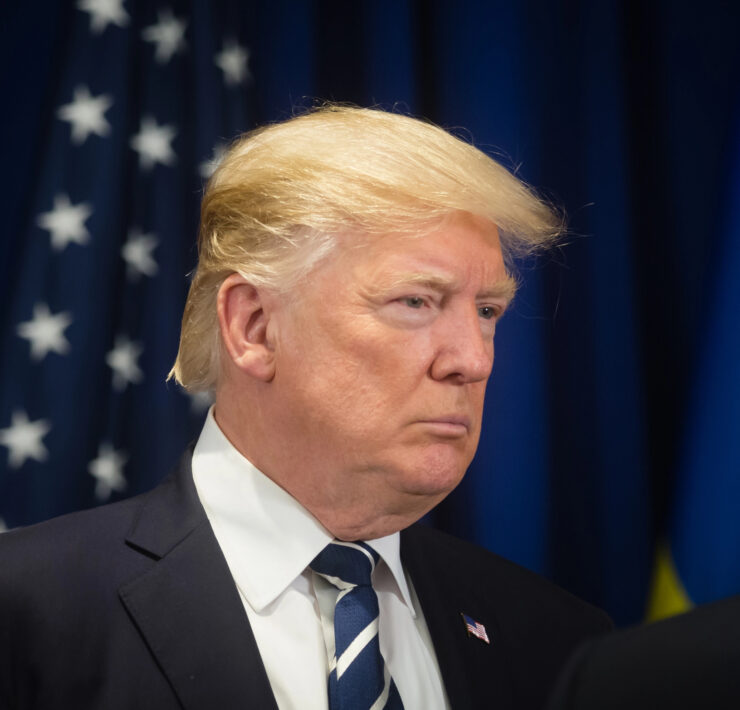The Historic Second Impeachment of Donald J. Trump

Ray has with OUT FRONT Magazine since February of 2020.…
On January 13, the House voted 232 to 197 to impeach President Trump exactly one week after rioters forced lawmakers to shelter in place as they stormed the U.S. Capital. This vote marks the fourth presidential impeachment and the first time a U.S. president has been impeached twice. Ten republicans, representing nine different states, joined all democrats to impeach Trump for “incitement of insurrection.” While an impeachment wouldn’t oust Trump from office early, it could potentially bar him from holding public office in the future. Senate Majority Leader Mitch McConnell’s office said that the chamber, which republicans currently hold, will not convene again until the transfer of power is complete, meaning, an impeachment trial would not begin before Biden is sworn in on January 20.
Speaker of the House Nancy Pelosi named nine impeachment managers, including Colorado Representatives Diana DeGette and Joe Neguse. These managers will be tasked with presenting the House’s case during the Senate trial.
“I am honored that Speaker Pelosi has asked me to serve as an impeachment manager and help defend our democracy during this critical moment in our nation’s history,” Representative DeGette says in a statement.
“There is no doubt that through his actions in recent weeks, President Trump is now one of the single greatest threats to the safety and security of our nation. It’s important, for the sake of our democracy and the future health of our nation, that he be held fully responsible for his crimes. He should be removed from office immediately, and I look forward to doing my part to ensure that happens as soon as possible.”
Related article: Senate Prepares for Second Trump Impeachment Trial
The article of impeachment, set forth in House Resolution 24, states:
“prior to the joint session of Congress held on January 6, 2021, to count the votes of the electoral college, President Trump repeatedly issued false statements asserting that the presidential election results were fraudulent and should not be accepted by the American people or certified by state or federal officials;
“shortly before the joint session commenced, President Trump reiterated false claims to a crowd near the White House and willfully made statements to the crowd that encouraged and foreseeably resulted in lawless action at the Capitol;
“members of the crowd, incited by President Trump, unlawfully breached and vandalized the Capitol and engaged in other violent, destructive, and seditious acts, including the killing of a law enforcement officer;
“President Trump’s conduct on January 6, 2021, followed his prior efforts to subvert and obstruct the certification of the presidential election, which included a threatening phone call to the Secretary of State of Georgia on January 2, 2021;
“President Trump gravely endangered the security of the United States and its institutions of government, threatened the integrity of the democratic system, interfered with the peaceful transition of power, and imperiled a coequal branch of government; and
“by such conduct, President Trump warrants impeachment and trial, removal from office, and disqualification to hold U.S. office.”
The democrat-led House approved the new article of impeachment in the same chamber where one-week prior, Congress fled rioters stoked by President Trump’s continued propagation of misinformation regarding the election. Calling January 6 “a day of fire that we all experienced,” House Speaker Nancy Pelosi of California said it followed Trump’s ceaseless spread of lies regarding the 2020 election and attempts to sway state election officials to overturn results.
Impeachment, Pelosi says, is “a constitutional remedy that will ensure that the republic will be safe from this man, who is so resolutely determined to tear down the things that we hold dear, and that hold us together.”
In preparation of Inauguration Day and the three days before it, security at the Capital has been tightened, with National Guard members stationed inside Congress, and the National Mall barred from public access January 20. This comes after several far-right groups have made claims for further protests and possible attacks on not just the U.S. capitol but capitol buildings in all 50 states.
Mayor of Denver Michael B. Hancock addressed concerns regarding possible demonstrations in a livestreamed, COVID-19 response update on the January 14, saying; “I want to assure our residents that we are monitoring the situation closely.” Hancock says that Denver police were working with state as well as federal agencies, and announced that they have taken precautionary measures such as modified hours for downtown, city government buildings.
“While we respect people’s First-Amendment right to peacefully assemble, we expect people to do so lawfully. Which, in Denver, means you cannot open-carry a weapon. And, let me be clear, we will not tolerate violence, destruction of property, or risk of safety to our residents of any kind,” Hancock concluded.
What's Your Reaction?
Ray has with OUT FRONT Magazine since February of 2020. He has written over 300 articles as OFM's Breaking News Reporter, and also serves as our Associate Editor. He is a recent graduate from MSU Denver and identifies as a trans man.










